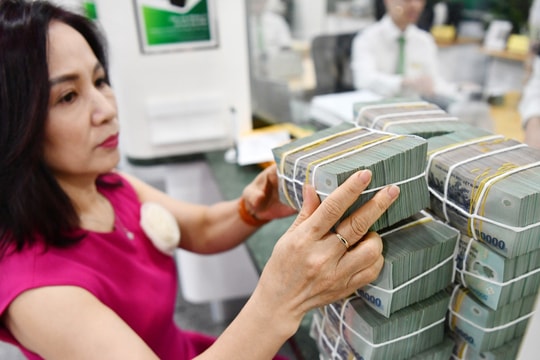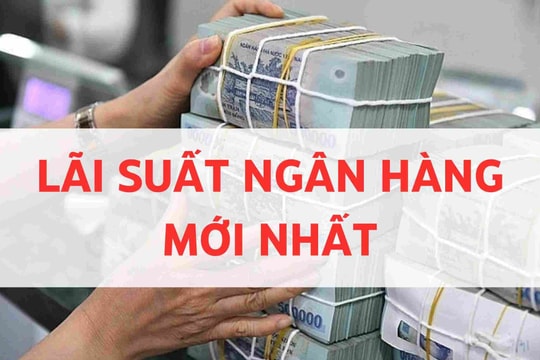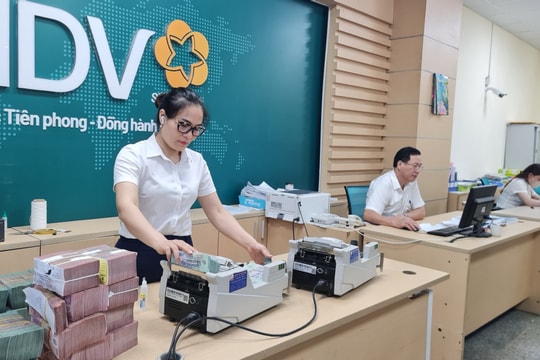Banks simultaneously reduce interest rates, creating favorable conditions to support people and businesses
(Baonghean.vn) - Since the beginning of the year, interest rates have continuously decreased, from over 10%/year to under 8%/year. This move aims to reduce interest rates, support people and businesses to increase access to capital, and contribute to the recovery of production and business.
MuchBanks simultaneously reduced interest ratesinterest rate
Last week, interest rates fell across the board after the State Bank reduced the ceiling on deposits under 6 months and a key interest rate. This is the second time in less than a month that the State Bank has reduced the ceiling on savings interest rates under 6 months, to 4.75%/year.
Immediately after the State Bank reduced its operating interest rate for the fourth time, many banks simultaneously reduced their savings interest rates, with the group of 4 state-owned banks alone reducing by up to 1%/year. The highest interest rate when depositing at the counter at Vietcombank, VietinBank, BIDV and Agribank is currently only 6.3%, applied to terms of 12 months or more, down 0.5-0.7% compared to May, for all terms.
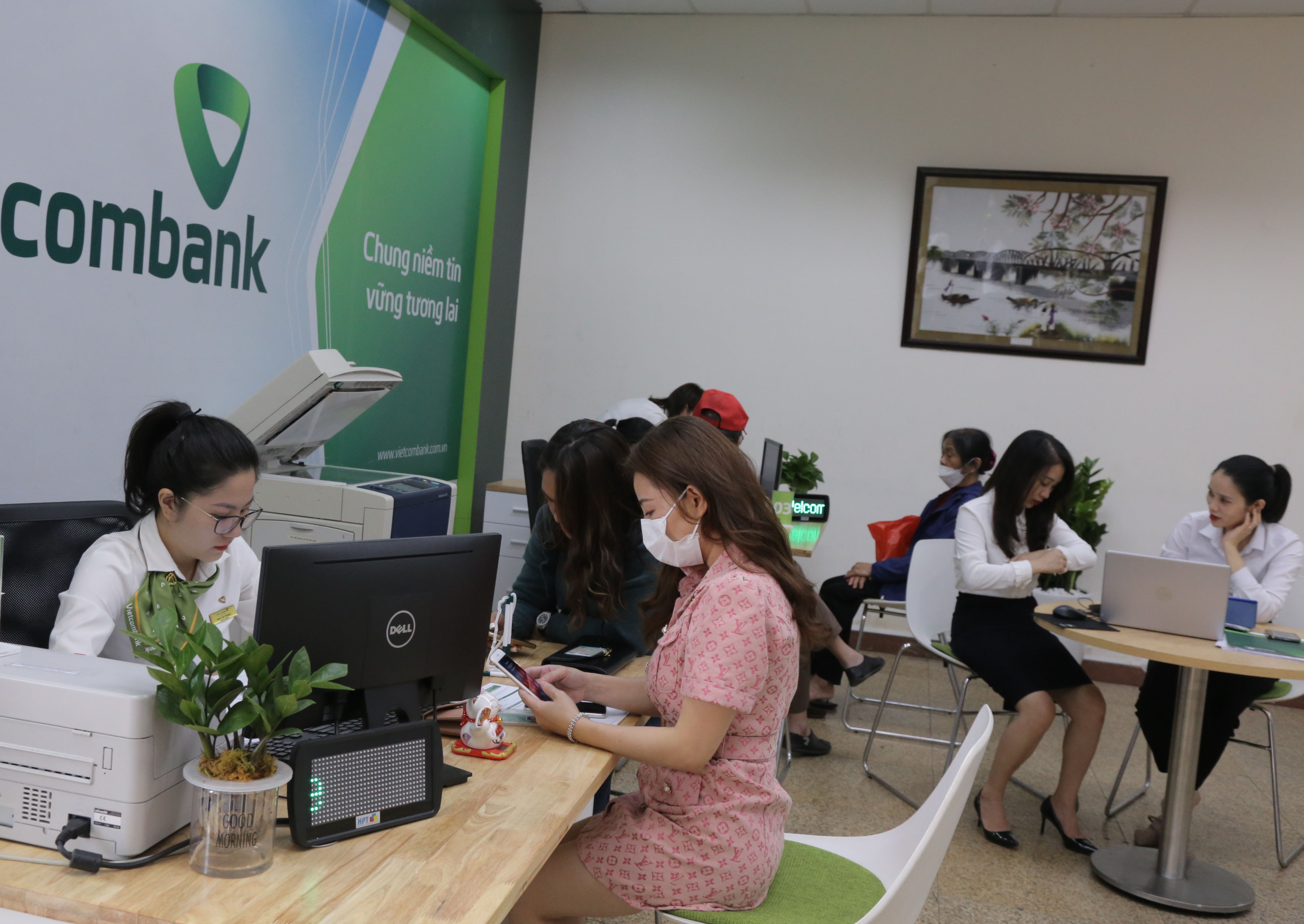
At Agribank Nam Nghe An branch, with shorter term deposits, customers depositing for 1 month only have 3.4%/year when transacting at the counter and about 4%/year if depositing online. The interest rate for 3-month, 4-month, 5-month deposits is only 4.1%/year. The interest rate for 6, 7, 8, 9, 10, 11-month deposits is 5%/year.
Meanwhile, for joint stock banks, savings interest rates are higher but also lower than before. Specifically, for terms of 1-5 months, it is now only 4.25%/year; from 6-11 months it is 6.80%/year... From July 4, at HDBank Nghe An branch, the highest listed interest rate is currently 9.1%/year for terms of 13 months; for long terms of 15, 18, 24 months it is only 6.8-7%/year.
The State Bank's four consecutive reductions in operating interest rates within just six months have created conditions for commercial banks to reduce deposit interest rates and, on that basis, reduce lending interest rates for people and businesses, for both old and new loans.
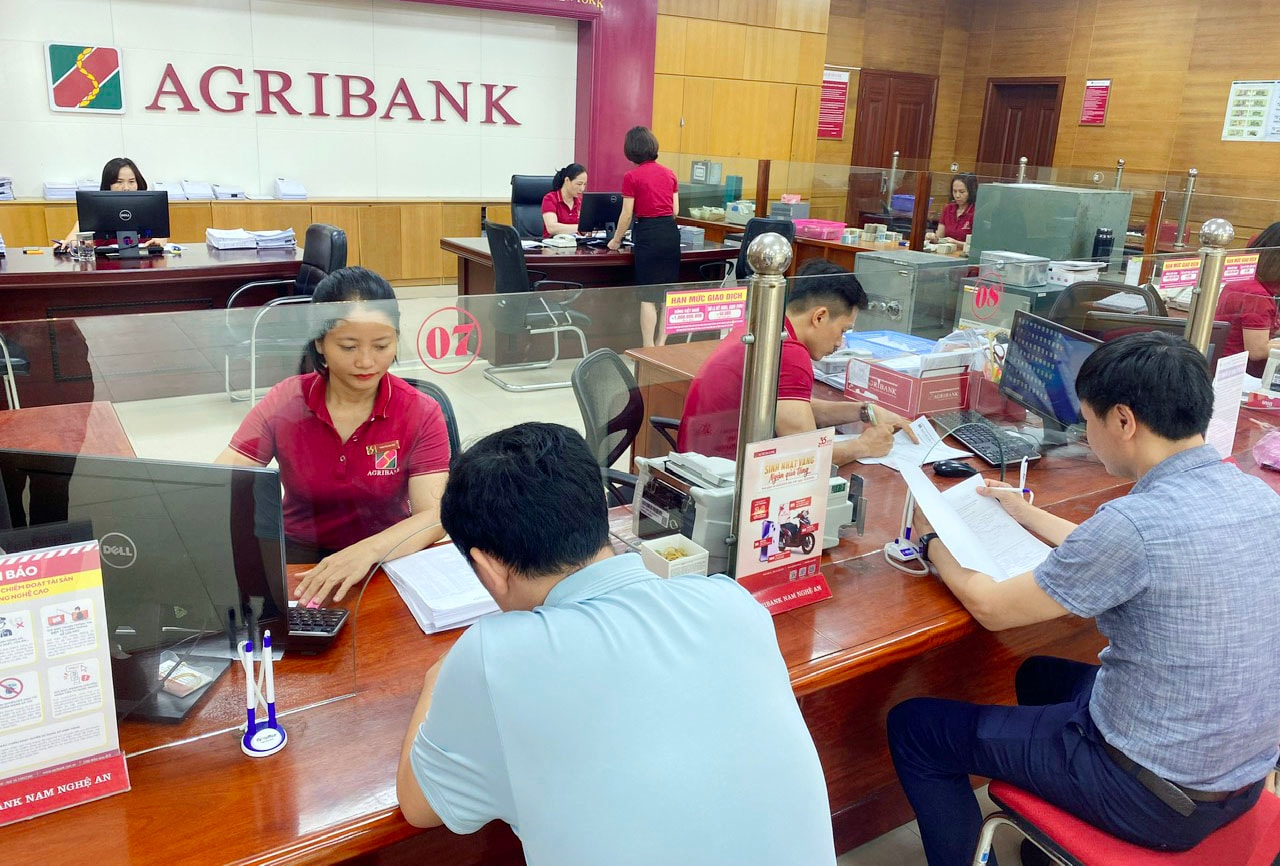
In early July, Agribank announced a further reduction in lending interest rates. This is the sixth interest rate adjustment by Agribank. Up to now, Agribank's lending interest rates have decreased by 2% to 4% compared to the beginning of the year, especially lending interest rates have decreased sharply for priority sectors.
Vietcombank is also implementing a credit package of 55,000 billion VND for retail businesses to borrow additional working capital with interest rates from 6.3%/year for terms of less than 12 months. Individuals borrowing for short-term production and business also have interest rates from 6.5%/year for loans of less than 6 months.
BIDV is implementing a number of credit packages for loans to buy commercial housing, social housing, worker housing, renovation and reconstruction of old apartments... with interest rates 1.5-2% lower than the normal rates of banks. At the same time, from June 1, 2023, BIDV has continued to reduce lending interest rates by up to 0.5%/year compared to current interest rates for existing medium and long-term loans that have not been previously applied competitive interest rates.
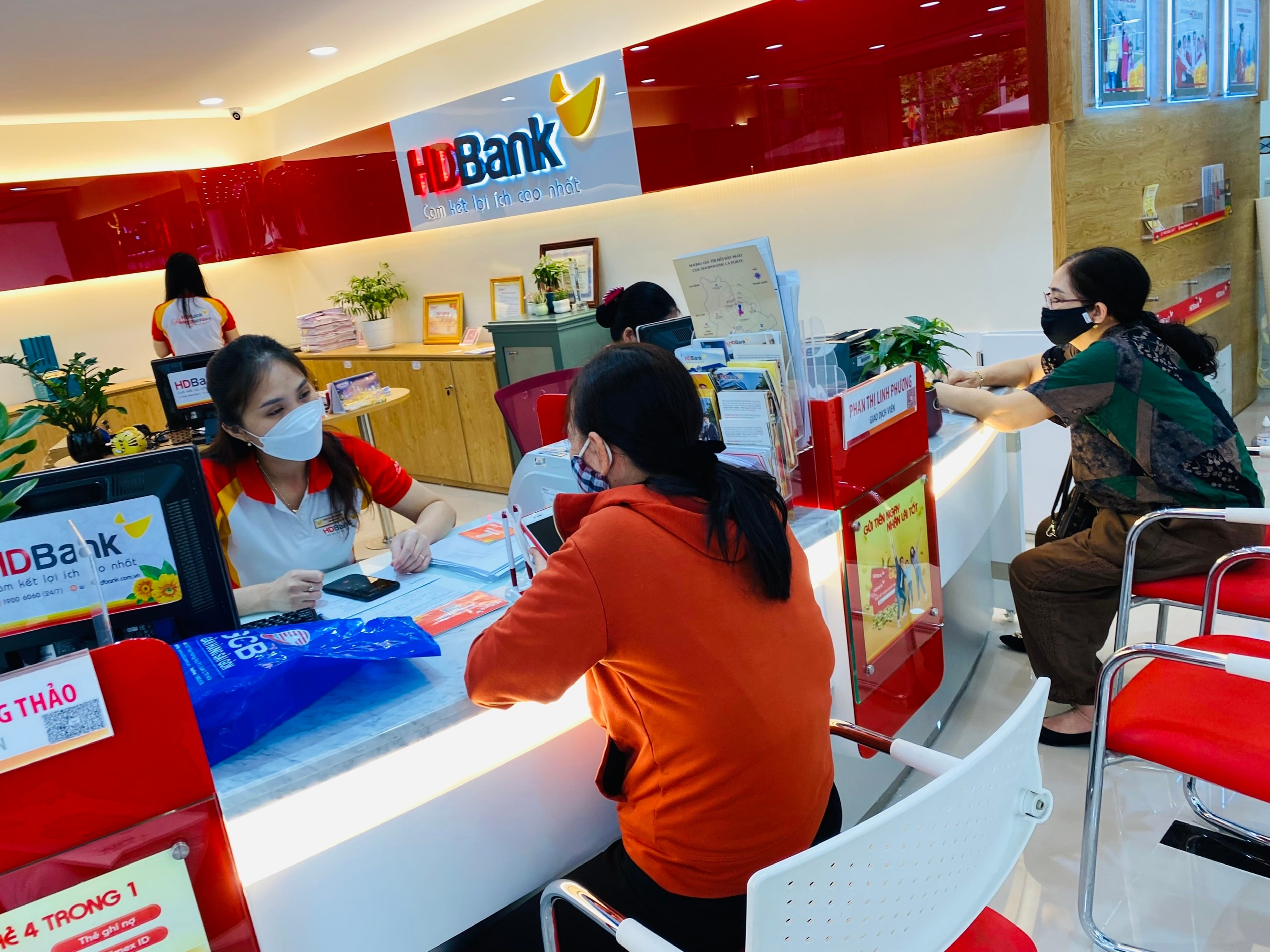
Not only state-owned commercial banks, but also joint-stock commercial banks have sharply reduced lending interest rates and simultaneously launched many preferential credit packages. For example, HDBank continues to reduce lending interest rates by 1%/year compared to the current interest rate for individual customers who are borrowing capital. For new customers, HDBank also promotes competitive credit packages with preferential interest rates to support customers in accessing loan sources such as business loans, flexible mortgages, real estate, etc.
Mr. Nguyen Manh Ha - Director of HDBank Nghe An branch said: The reduction of lending interest rates by credit institutions is divided into two groups, old loans have decreased less because they had to mobilize at high interest rates before. New loans have decreased because input interest rates and the current economic demand is still low, credit growth is low, so banks have reduced interest rates to support economic growth, partly creating more consumer psychology.
However, because banks use capital mobilized from the market to lend, the use of loan capital and loan sources depend on the financial capacity, capital costs and the process of capital exploitation and use of each bank. Therefore, enterprises wishing to access capital (including priority areas) must meet the conditions and credit principles of the bank: lending must ensure the safety of capital sources.

Mr. Tran Duc Long - Chief Accountant of Kido Vinh Co., Ltd. shared: Currently, our company has been able to borrow capital for production at a lower interest rate than at the beginning of the year. With the reduced interest rate, combined with the impact of a 2% reduction in VAT, deferral of many other taxes... will create a boost for the economy in the last month of the year.
Accompanying and supporting businesses
In the first 6 months of 2023, the banking industry will continue to deploy and implement solutions to contribute to credit growth, ensure capital supply, deploy solutions to remove difficulties, facilitate businesses and people to access bank capital, implement policies to support economic recovery, continue to remove difficulties for customers affected by the Covid-19 epidemic; restructure credit institutions associated with bad debt handling, direct the promotion of digital transformation and non-cash payment transactions.
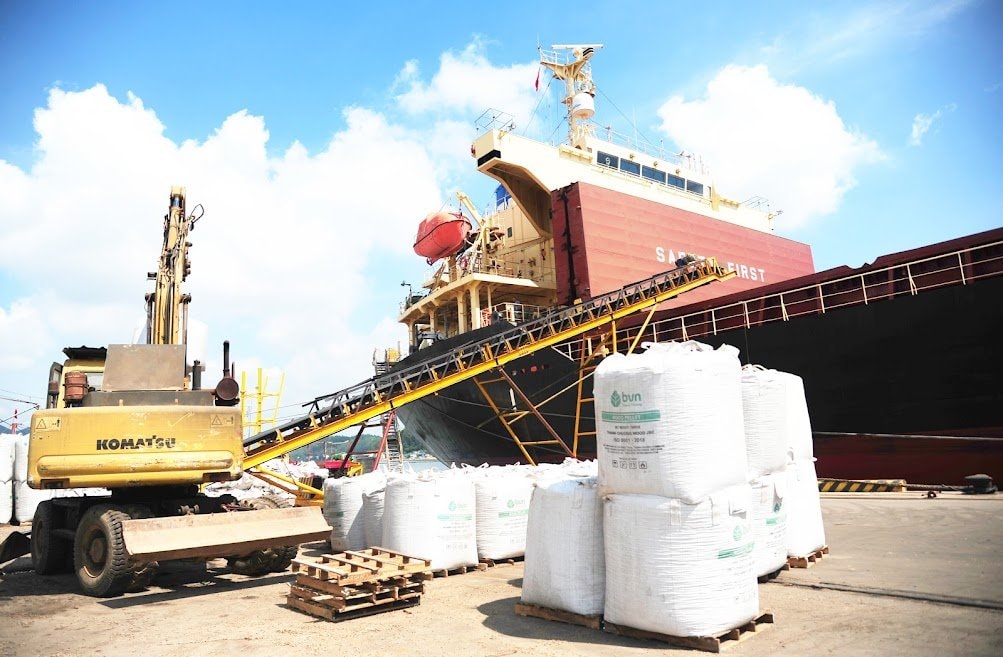
The banking sector has seriously implemented the 2% interest rate support program from the state budget of VND 40,000 billion according to Decree 31/2022/ND-CP of the Government, Circular 03/2022/TT-NHNN and Directive 03 of the Governor. By May 31, 2023, the loan turnover with interest rate support was VND 485.6 billion; the outstanding loan supported was VND 239.8 billion at 10 commercial bank branches with 34 customers, the amount of interest rate support was more than VND 2.4 billion.
By June 30, 2023, the mobilized capital in the province reached about VND 212,778 billion, an increase of 6.5% compared to the beginning of the year; the total outstanding debt of credit institutions in the area reached about VND 275,567 billion, an increase of 1.5% compared to the beginning of the year; of which outstanding loans for the rural agricultural sector and rural areas were VND 128,344 billion, accounting for 46.5% of outstanding loans in the whole area; outstanding loans for high-tech agricultural development and clean agriculture reached VND 20,057 billion, accounting for 7.3% of total outstanding loans.
In the first 6 months of 2023, the State Bank of Vietnam announced decisions to reduce some key interest rates 3 times (March 15, March 31 and May 23), contributing to removing difficulties for businesses and the economy. Deposit and lending interest rates decreased by 1% compared to before March 15, 2023.
Implementing the direction of the Government and the Prime Minister, based on recent market developments and interest rates of the credit institution system, the State Bank requires credit institutions to strictly implement the State Bank's regulations on deposit interest rates; publicly post deposit interest rates at deposit receiving locations as prescribed. We continue to implement measures to reduce deposit interest rates, thereby reducing lending interest rates for customers, actively supporting businesses and people to restore production and business, promoting growth...
It can be said that the State Bank's recent consecutive reductions in operating interest rates have created conditions for people and businesses to access interest rates at lower costs in a difficult context. According to forecasts, by the end of this year, interest rates in the economy will decrease to the end of 2019 levels, actively supporting the economy's recovery after the pandemic.

